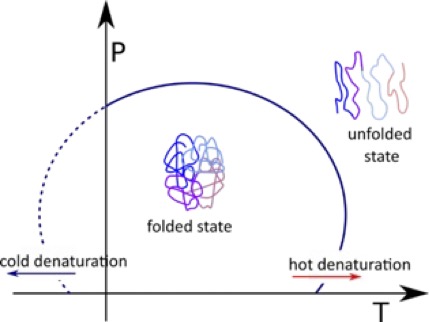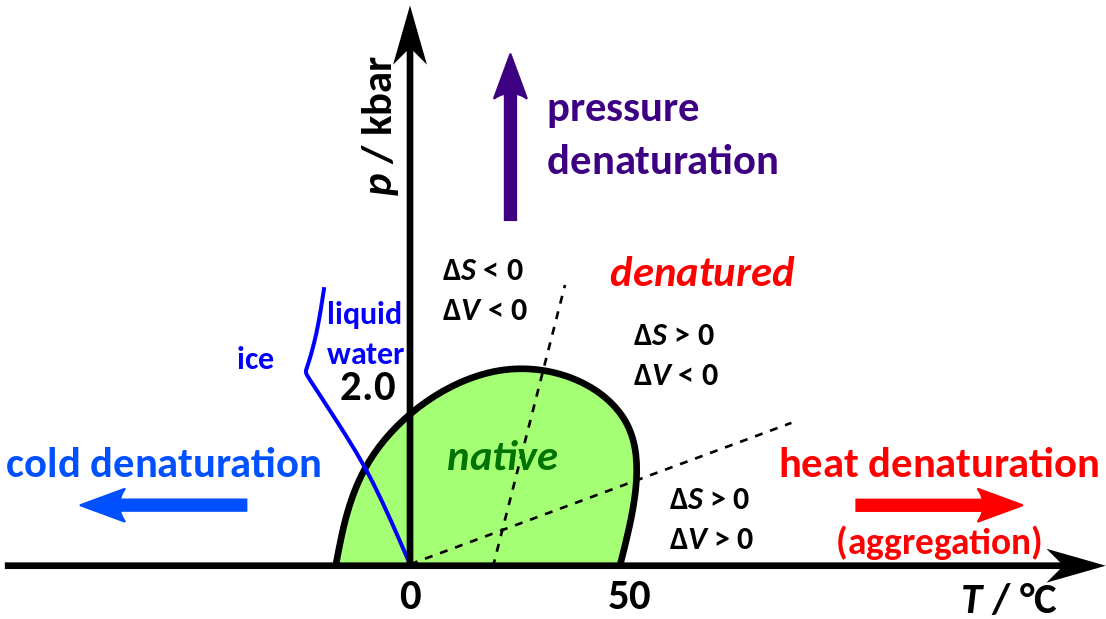The cold denaturation of proteins
Research project of Nada Nazzal, student in the master Soft Matter and Biophysics, at the institute Laue Langevin Grenoble.
Description of the internship
Proteins can denature when submitted to extreme conditions as high or low temperature or pressure. Denaturation by heat was studied in detail. Often it leads to aggregation and thus to irreversibility of the process. Much less is known about the cold denaturation, which seems to be largely reversible and must rely on different mechanisms. High hydrostatic pressure can shift the transition temperatures and have additional protective or destabilizing effects.
We want now to investigate by means of different experimental techniques as calorimetry, FT-IR, densitometry and neutron scattering the impact of cold denaturation on the structure and dynamics of proteins and develop a new theoretical model to describe the transition. These effects have to be related to the functionality of the biological systems. Our findings can provide important input for biotechnology or medical applications.
Publications
S. A. Hawley, Biochemistry, 1971, 10, 2436–2442.
L. Smeller, Biochim Biophys Acta, 2002, 1595, 11-29.
J. Peters, J. Marion, F. J. Becher, M. Trapp, T. Gutberlet, D. J. Bicout and T. Heimburg, Sci Rep, 2017, 7, 15339
Published on February 12, 2021
Updated on May 19, 2024



